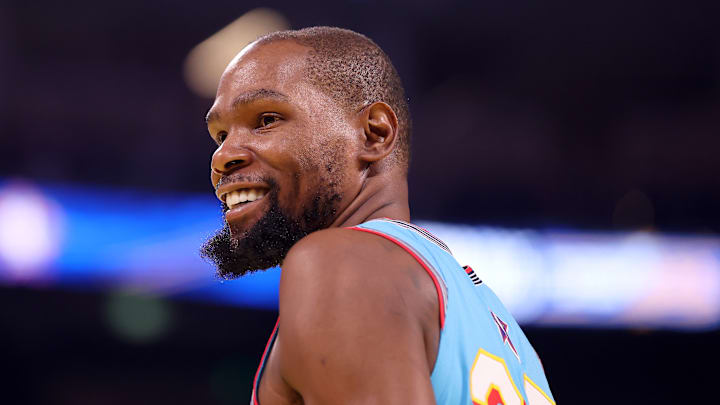When the Houston Rockets traded for Kevin Durant, the franchise took a significant step forward. Health will be the determining factor of what transpires on the court, but simply completing the trade has enabled Houston to empower overlooked players to find their place in the rotation.
No player should benefit more from Durant's arrival than second-year guard Reed Sheppard—a promising young player who struggled to secure minutes in 2024-25.
Houston selected Sheppard at No. 3 overall in the 2024 NBA Draft, which seemingly implied that he would play a significant role for the team as a rookie. Instead, he appeared in 52 games, starting three and averaging 12.6 minutes per contest.
One of the primary reasons Sheppard struggled to secure playing time was Houston's prioritization of more experienced players at the guard positions.
Jalen Green appeared in 82 games and played 32.9 minutes per contest, while Fred VanVleet averaged 35.2 and Aaron Holiday received 12.8 off the bench. That inevitably limited the opportunities Sheppard received in head coach Ime Udoka's rotation.
With Green headed to Phoenix in the Durant trade and Holiday's club option still undecided, however, the door is wide open for Sheppard to secure a massive role alongside Houston's new star.
Reed Sheppard finally has chance he needs to thrive with Rockets
With Durant on the court, the Rockets have a chance to rectify several of their biggest issues. That includes inefficiency on midrange and three-point jump shots, the lack of a distinguishable go-to option down the stretch, and the need for a true No. 1 in the playoffs.
In order to adequately supplement Durant's talent, it would behoove the Rockets to complement him with shooters and playmakers.
Sheppard may not have blown viewers away with his production in 2024-25, but his upside is unavoidable. That much was displayed in his averages of 12.6 points, 4.3 rebounds, 4.1 assists, 1.9 steals, 0.9 blocks, and 2.6 three-point field goals made per 36 minutes.
Those numbers are eerily similar to his averages from his lone season at Kentucky: 12.5 points, 4.5 assists, 4.1 rebounds, 2.5 steals, 0.7 blocks, and 2.3 three-point field goals made per game.
The difference, of course, is that Sheppard was wildly inefficient during his rookie campaign. It was a stark contrast from his freshman season, when he raised the bar for efficiency from a three-point shooter with a slash line of .536/.521/.831.
The production is effectively identical, however, which offers ample reason to believe Sheppard can soon find his shot and thus thrive in the NBA.
Playing alongside Durant should simplify the matter and give Sheppard a surplus of opportunities to thrive in catch-and-shoot situations. He should also have a chance to continue to excel as a two-way playmaker, thus making his case for a steady role as the third guard in the rotation.
With the clear potential to ultimately develop into the point guard of the future, Sheppard's path to doing so has never been clearer than after the Durant trade.
